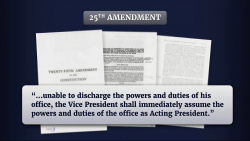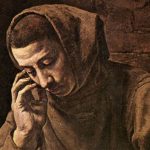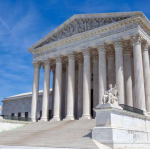Jacobitism has been written about as much by the historians as it has by the poets, and the Scottish historian Allan I. MacInnes is hardly unaware of the challenge he is setting himself in making a fresh contribution to this field. In Conflict and Loyalty: Jacobitism in Europe and Beyond, he teases out a unique approach to Jacobite historiography by writing a history of Scottish Jacobitism that focuses on Scottish Jacobites outside of Scotland. MacInnes aims to explore “Jacobite communities at home and in exile as old European horizons were broadened by trans-oceanic adventuring.”
MacInnes briefly runs over the history of the Jacobite cause in the first two chapters. He plays fast and loose with the chronology, and the uninitiated could get lost in the long series of failed rebellions and plots and the even longer list of failed rebels and plotters. At times, MacInnes throws characters and events into the narrative sans introduction, only to resolve the blurry picture fully in subsequent parts of the book.
What really comes to the fore in MacInnes’s narrative and what makes up the main body of the work is his exploration of the exile experience. Despite their royal station, the Stuarts and their court were some of Scotland’s least successful expatriates. The ousted James VII and his descendants were the beneficiaries of financial and military support from other powers—first among them France and the Papacy—but they were beholden to these foreign institutions as well, always at the mercy of the moods of these monarchs and the vicissitudes of European states as the Continent went through centuries of crisis and turmoil. At the beginning of the Stuart exile, France, Spain, the Papacy, Sweden, and Poland all offered and as often retracted various kinds of support and promises of military aid to the Jacobites. When Henry Benedict Stuart, the last direct descendent of the Stuart line, died in 1807, his only remaining source of income was an endowment from George III.
Other Scottish exiles had far more interesting and, at times, successful tales. Patrick Gordon of Auchleuchries offered his services as a military man in Eastern Europe before the Glorious Revolution had even begun, eventually rising to the rank of full general in the Russian Army. His kinsman Alexander Gordon fought both for Russia and as a Jacobite general in the rising of 1715. Thomas Gordon became a sailor in the Russian Navy and lobbied Russia and Sweden for their support in the 1719 minor rising. Beyond people named Gordon, James Keith was also an important military figure in Russia and Prussia. He got another chance to fight against the Hanoverians with the Prussian Army during the War of Austrian Succession. These men not only played important roles as adopted sons of their new states, but they also used their influence in those nations to plead for the Stuart restoration.
Other Scots fought with the British and were instrumental in extending the empire. MacInnes claims that “outside Europe, the Jacobite diaspora had its most significant presence in the Americas.” The Scots had been settling in the Americas, where they took part in the establishment of several colonies, from before the Glorious Revolution. During the War of Independence, Highland clan chiefs, in attempts at reintegration and reprieve from the harsh reprisals that followed the rebellion of 1745, raised Highland regiments to fight for the crown that had suppressed them. These Highlanders were seen as especially adept at fighting on the frontiers and later became important settlers of those regions. But some Scots and their descendants who had been in the American colonies for decades were ardent Patriots who rose to fight the British on new grounds and with a new identity.
On the other side of the world, exiled Jacobites were active in the large corporations that were colonizing Asia. A notable example is that of John Macpherson, a Scotsman who traveled to India as a purser on an East India Company ship and became the governor-general of the British Raj in 1785. Other Scots with more tangible connections to Jacobitism made enough money in exile to buy back the estates that they had lost following the uprisings.
Another Jacobite exile, George Chalmer, was a founding member of the Swedish East India Company. Though far less remunerative than its British counterpart, the company was successful enough for his son, William Chalmers, to found Chalmers University of Technology in Gothenburg, Sweden.
MacInnes describes and explores these figures with short, sequential biographies. He maintains his focus by grouping them in geographical and thematic chapters, and he always connects them back to the cause of Jacobitism.
He closes his work with a chapter on the Enlightenment and Romanticism, where he is too hard stretched by the enormous contribution the Scots made to these two movements to cover all the names and texts with the same depth and analysis that made the preceding chapters so enjoyable. These subjects have been so well treated in other works that his brevity is as much a virtue as a fault.
The intellectual movements he discusses are deeply ingrained in our cultural heritage and were essential to the creation of the modern world. James Macpherson, the man who gave life to Poems of Ossian (1761–63), had strong Jacobite ties. His epic cycle, which idealized and mourned the passing of Scotland’s rural and Highland culture, was a huge success across Europe and helped inspire the Sturm und Drang and Romantic movements. Sir Walter Scott’s historical novels Waverley (1814) and Rob Roy (1817) directly honored the 1745 and 1715 uprisings, respectively.
Of all lost causes, that of Jacobitism is perhaps the most lost—now it is unimaginable, and has been for some time, that a Stuart descendent would ever be the monarch of the United Kingdom. But the poetry of Robert Burns, the novels of Walter Scott, and the great intellectual contributions made by the thousands of displaced Scots have an immortality beyond the political crisis that inspired them.


















